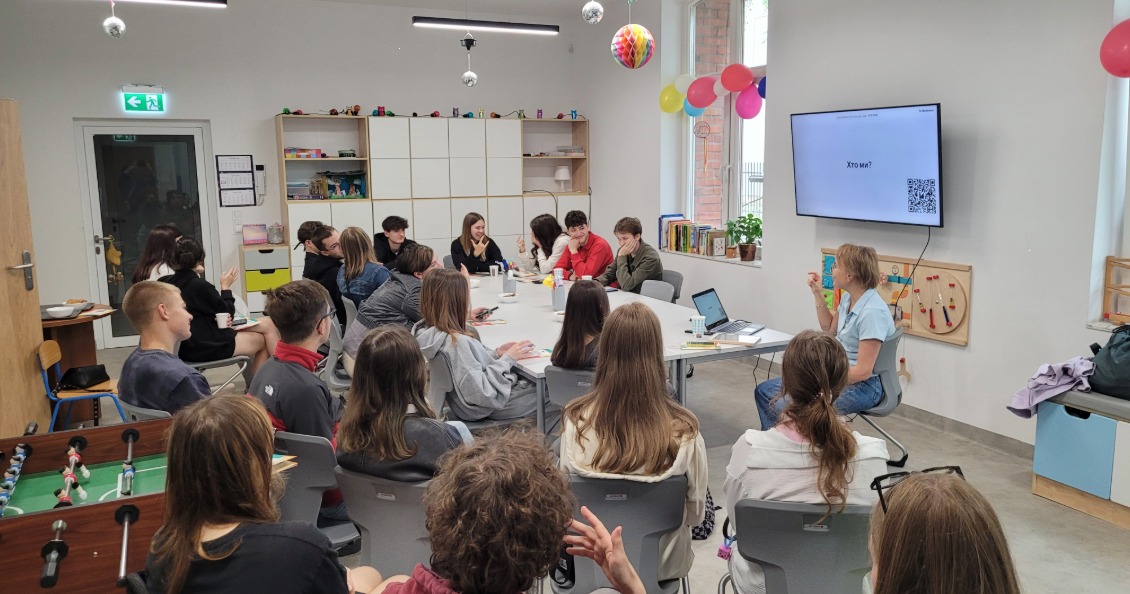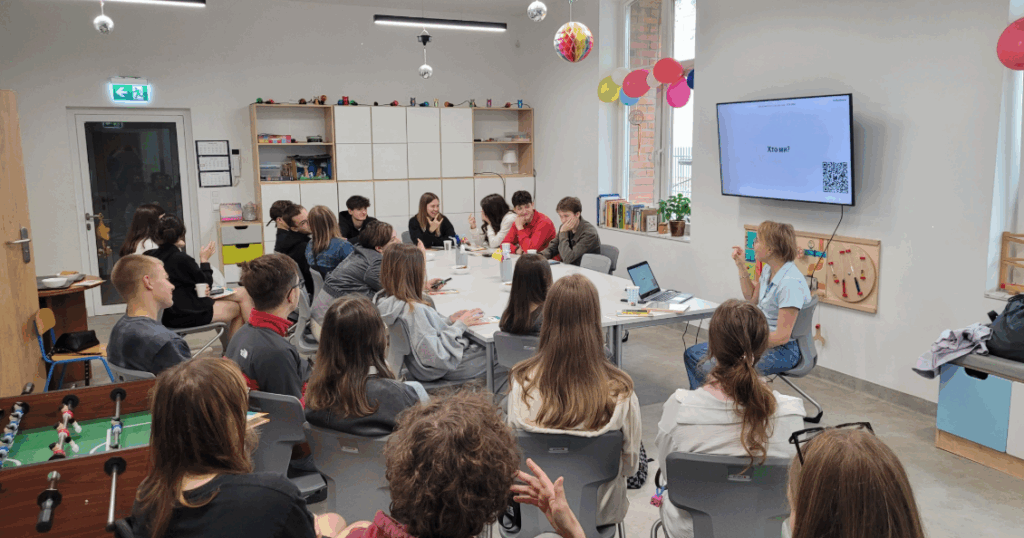No contracts, minimal health and safety precautions, and cash payments at one-third of minimum wage

With the support of the European Social Fund (ESF+) Social Innovation+ Initiative*, a team of psychologists, development economists and labor market researchers from Centrum Organizowania Związków Zawodowych and University of Warsaw Faculty of Economic Sciences carried out focus group discussions with 112 Ukrainian refugee youths aged 15-19 years in Gdansk, Katowice, Krakow, Lublin, and Warsaw during June and July, 2025.
The purpose of the focus groups was to assess Ukrainian refugee teens in Poland with respect to their attitudes toward work and careers, personal experience with working for pay in Poland, work-study balance, household and personal stress factors, and knowledge of the rights and protections of workers in Poland.
The full text of the English-language report can be accessed here (Polish and Ukrainian translations will be available in October).
The study finds that Ukrainian teenagers in Poland stand at the brink of huge opportunities for personal and professional growth, at the same time that Poland itself stands to realize enormous growth in productivity, investments, and innovation thanks to incoming Ukrainian refugees. Much of what the Government of Poland, voivod administrations, and municipal services have done to ease the integration of Ukrainian people into housing, jobs, schools, and social services has been a remarkable success. This is evidenced by high levels of Ukrainian employment, tax-paying, and consumption spending.
Yet confidential, anonymous interviews with Ukrainian teens reveal a “wild East” in the Polish labor market that differs markedly from Labor Law and codes. Long, unpaid “probational periods” of work, widespread avoidance of labor contracts in favor of cash or mandate or task-contracts, spontaneous dismissals without back-pay, flouting of safety precautions or imposing the cost of health and safety equipment on employees, uncompensated over-time, fines and accusations of “money missing from the register” resulting in heavy subtractions from pay are heard from every group in five cities in Poland. Nor is there confidence in a meritocratic or transparent market for job-finding, with teens expressing disillusionment that jobs could ever be found through diligent application and CV preparation. Rather, those who have worked indicate that family and friends (primarily mothers) put them into their positions. There are also severe gaps in teens’ knowledge of their rights, from minimum wage to safety precautions to overtime. It is not surprising that more than half of the focus group participants indicate that they think they do NOT have the same chance at fair contracts and conditions that their Polish peers have.
How will today’s dish-washers, fruit harvesters, café servers and delivery-riders make any progress toward becoming the “businessmen” and “investors” that they dream to be? Based on the focus group discussions, several key needs and design recommendations will guide this project:
- Teens need to assess more critically their allocation of time between study, work, relaxing and other activities. With more than two-thirds of focus group participants indicating fewer than 20 minutes per day of study or reading, there is a widespread under-valuation of learning (and an over-expectation of future opportunities);
- Teens need to ramp up the productivity of study, especially language study, both by increasing time and intensity;
- Teens need both inspiration and specificity about potential career directions; while claims to becoming a “millionaire” or “crypto-trader” are ambitious, such responses indicate limited self-reflection or investigation of industries, specializations and careers;
- Older teens need to visualise the logical progression of their efforts toward personal and career goals; the most outspoken and self-confident respondents in the focus groups often described their future selves with very specific milestones (e.g., “speaking Polish at B2 level”, “becoming a licensed dentist”);
- Teens need to become more aware among their friends and with parents of the red flags that indicate high-risk employment, and become familiar with local support resources and Labor Inspection redress mechanisms in the event of harm;
- Teens need to be drawn back from distractions that dissipate their time (e.g. scrolling, messaging) in the race to achieve language and skills before they are thrown into the job market. One approach can be to adopt some of the same addictive designs or “gamifications” that mobile apps employ. A learning platform may “hook” teens, for example, by visualizing their avatars, achieving mini-milestones, earning badges, excelling against their peers, appearing on leaderboards, and moving along a progress-bar or through levels or worlds.
This assessment forms the baseline analysis for this project.
Responding to the vulnerabilities and knowledge-gaps identified in these focus groups and a parallel assessment in Germany, the project consortium is adapting a career guidance and learning platform for Ukrainian youth to the specific needs in Poland and in Germany and will implement workshops, a help hotline and a career guidance call center in early 2026.
